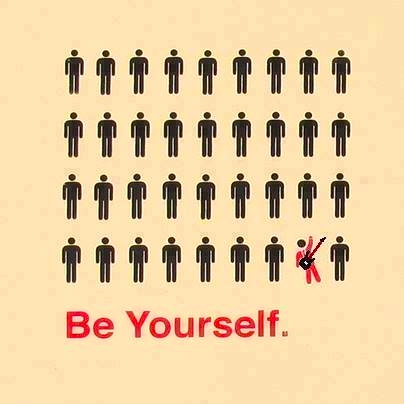Instinctive Conformity

When you look at a set group of people, you can typically figure out who associates with one another. Whether by their clothing or the way they act, one can tell which people spend a lot of time together. This is due to our instinct to conform. Conformity affects all of us, especially in our sense of materialistic purchases. When we see someone a large population of people or perhaps even a celebrity with a specific type of shoe on, we naturally feel the urge to have the same pair of shoes. We all know that it is typical to follow the crowd, but the question is why we do this? The most logical reason is that people need constant validation. People fear that if they stray away from trends or popular opinion, they will be labeled as an outcast and rejected by society.
So where do these trends come from? The main platform for communicating trends is social media. Social media is a big part of teenagers’ lives, which therefore makes teenagers more vulnerable to buying into new trends. In the article “The Bandwagon Effect: How It Affects Your Decisions Without You Knowing,” the author, Janey Davies, states that “Studies have shown that as a result [of social media], teenagers are most susceptible to the bandwagon effect and it’s not surprising when you consider how much they want to fit in. As we get older, we grow in confidence. We become more assured of our beliefs and we feel able to confront those who don’t share the same ideologies as us.” Teenage years are vital to grasping identity and learning who one wants to be. When constantly feeling pressured to be similar to everyone else it is difficult for a person to figure out who they are. Standing alone takes a lot of courage, whether in a simple setting with friends or in a large group where the decision you make could have a drastic effect on a large set of people. Teenagers are still learning to stand up for what they believe in and often struggle to stand alone, especially when their friends disagree. The need to be liked and to fit in leads to bandwagoning or making decisions that may not be the most beneficial for us.
Being a part of new trends and fitting in with others may make people feel more accepted by their peers, but it takes away from individuality. This often occurs because people are naturally wired to want to have validation for their actions and ideas. One way to avoid the bandwagon effect is to make your decisions slowly. When people make quick impulsive decisions and do not truly think through their responses, they are more likely to simply conform. People do this simply because they do not even consider any other options in the heat of the moment. Another way to avoid the bandwagon effect is to not initially ask someone else their opinion. People find it difficult or even scary to stand alone against their peers. When in a situation where people have to make a decision, one will often ask others for an opinion. Once a person knows someone else’s personal opinion, he or she may agree to it even if it differs simply due to fear of confrontation. A person can develop a clearer, less-biased, and more personal opinion on the subject matter when they establish a stance prior to hearing the opinions and thoughts of others.
The bandwagon effect is used in marketing all around us. From something as simple as hairstyles to a matter that is as drastic as an election, people often follow the crowd simply because they are too scared to stand alone. Whether due to the fear of being left out or the fear of being made fun of, the insecurity of disagreeing with peers and superiors stands firm in the psyches of many people. We can avoid this by simply thinking for ourselves and requesting the opinion of others only when we first have established how we feel. Being alone is scary, but overcoming the bandwagon effect could benefit us all by increasing individuality among society.

Olivia is a sophomore and a first year member of the Crimsonian staff. Olivia enjoys singing in concert choir and Ars Nova. She is also secretary for the...














